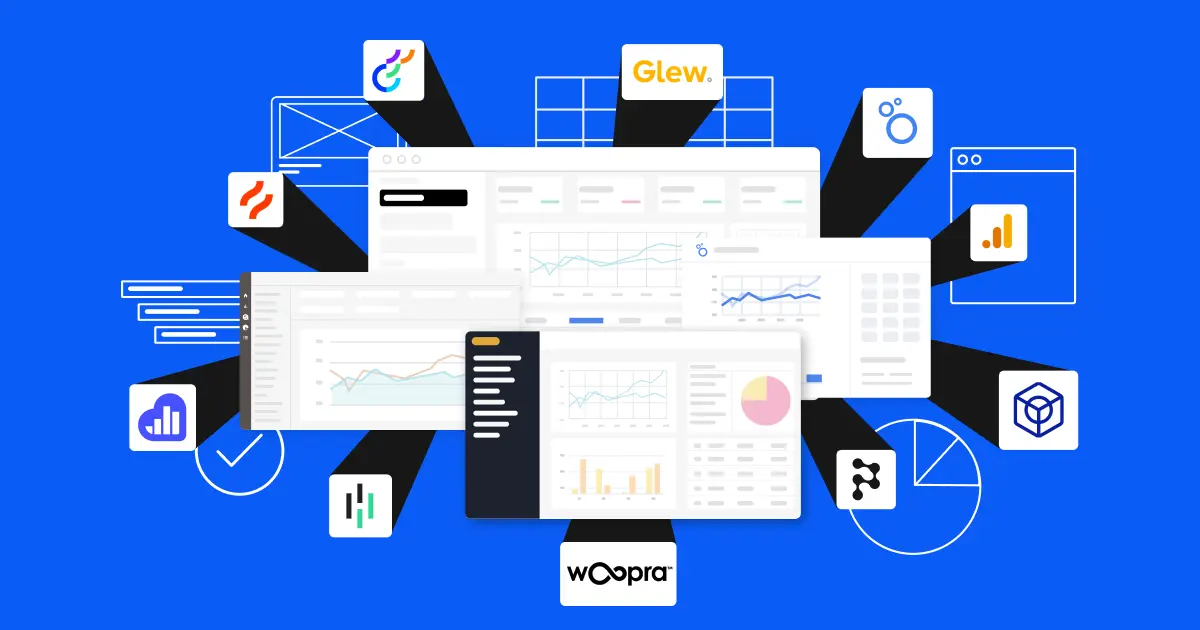In the competitive world of e-commerce, understanding customer behavior, tracking performance, and optimizing strategies are critical for success.
E-commerce analytics tools provide actionable insights that help businesses make data-driven decisions.
This article explores the importance of analytics tools and highlights the top solutions every e-commerce business should consider.
1. Why E-Commerce Analytics Tools Matter:
E-commerce analytics tools allow businesses to:
- Track Performance: Monitor metrics like sales, conversion rates, and traffic sources.
- Understand Customer Behavior: Gain insights into how customers navigate your site, what they purchase, and what causes them to abandon carts.
- Optimize Marketing Campaigns: Identify which channels are delivering the best ROI and refine your marketing strategies accordingly.
- Enhance Customer Experience: Use data to improve website usability, product offerings, and overall shopping experiences.
2. Key Metrics to Monitor with Analytics Tools:
To make the most of analytics tools, focus on tracking the following key metrics:
- Conversion Rate: Measures the percentage of visitors who complete a desired action.
- Customer Lifetime Value (CLTV): Estimates the total revenue a customer generates over their lifetime.
- Cart Abandonment Rate: Tracks how many users leave items in their carts without completing the purchase.
- Bounce Rate: Indicates how many visitors leave your site after viewing just one page.
- Traffic Sources: Identifies where your visitors are coming from, such as organic search, paid ads, or social media.
3. Top E-Commerce Analytics Tools to Consider:
a) Google Analytics
- Overview: One of the most widely used analytics tools, Google Analytics offers a robust set of features for tracking website traffic and user behavior.
- Key Features: Traffic analysis, goal tracking, e-commerce-specific reports, and integration with other Google tools like Ads and Search Console.
- Best For: Beginners and advanced users seeking detailed insights into website performance.
b) Shopify Analytics
- Overview: Built specifically for Shopify users, this tool provides comprehensive reports directly within the platform.
- Key Features: Sales tracking, customer insights, marketing performance reports, and custom dashboards.
- Best For: E-commerce stores running on the Shopify platform.
c) Adobe Analytics
- Overview: A premium analytics solution that delivers advanced insights for larger businesses.
- Key Features: Cross-channel data collection, real-time analytics, and AI-powered insights.
- Best For: Large-scale e-commerce businesses requiring in-depth analytics.
d) Hotjar
- Overview: A user experience analytics tool that focuses on understanding on-site behavior.
- Key Features: Heatmaps, session recordings, and user feedback collection.
- Best For: Identifying website usability issues and improving the shopping experience.
e) SEMrush
- Overview: A digital marketing suite that includes tools for SEO, PPC, and competitor analysis.
- Key Features: Keyword tracking, traffic analysis, and competitive research.
- Best For: Businesses looking to enhance their search engine visibility and track market trends.
f) Klaviyo
- Overview: A tool that integrates analytics with email marketing automation for personalized campaigns.
- Key Features: Email campaign performance metrics, customer segmentation, and predictive analytics.
- Best For: E-commerce brands focusing on email marketing and customer retention.
g) Mixpanel
- Overview: A product analytics platform that tracks user interactions and funnels.
- Key Features: Real-time data visualization, A/B testing support, and detailed cohort analysis.
- Best For: Businesses seeking to optimize specific user journeys.
4. How to Choose the Right Tool for Your Business:
When selecting an analytics tool, consider:
- Your Budget: Some tools are free or affordable, while others cater to enterprise-level budgets.
- Your Needs: Identify whether you need insights on traffic, marketing, user behavior, or a combination of these.
- Ease of Use: Choose a tool that aligns with your team’s expertise and learning curve.
- Integration Capabilities: Ensure the tool integrates with your e-commerce platform and other marketing tools.
Conclusion:
E-commerce analytics tools are indispensable for understanding your business’s performance and uncovering opportunities for growth.
Whether you’re tracking customer behavior, optimizing marketing campaigns, or improving the user experience, the right tools can make all the difference.







